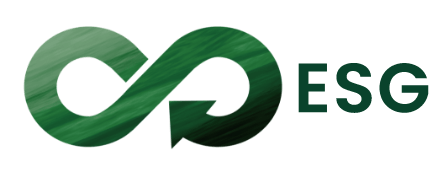Quality Policy
BenQ Materials is committed to delivering high-quality products and services that meet customer needs and comply with regulatory requirements. The company continuously promotes the effective operation and improvement of its quality management system. We have obtained international quality certifications including ISO 9001, IATF 16949, and IECQ QC080000. Guided by a risk-based approach, full employee participation, and a culture of continuous improvement, we implement quality control throughout the entire value chain—from R&D, procurement, production to delivery—to ensure product safety, reliability, and customer satisfaction.
Quality Risk and Preventive Management
To ensure product quality and customer satisfaction, BenQ Materials has established a comprehensive quality management framework. For both new product development and changes to existing products, we implement APQP (Advanced Product Quality Planning) and EC (Engineering Change) procedures, which are integrated with our overall quality management systems (such as ISO 9001 and IATF 16949)
The APQP process is led by the Project Manager (PM) and follows four major phases: Planning → DVT (Design Verification Test) → MVT (Mass Verification Test) → MP (Mass Production). It covers product design, testing, validation, and production readiness to ensure that new products meet internal quality standards and customer requirements from concept through mass production. With stage-gate reviews and risk assessments, the process identifies technical challenges and potential failure risks early on to minimize quality issues during mass production
- EC: Design, Material, and Process Change Management in Mass Production
The EC process is applied to manage engineering changes during the mass production phase. It is initiated by the change requester (PM / Sales / MM / MFG) and involves the following steps: ECR (Engineering Change Request) → ETR (Engineering Test Request) → EAR (Engineering Analysis Report) → ECN (Engineering Change Notice). Before any change is implemented, cross-functional defect verification (involving MFG / Process Engineering / QA / ES) is conducted to ensure the change does not negatively impact product quality or process stability.
Quality Management
|
Item
|
Display Materials
|
Quality management
|
-
Optimized validation criteria during new product development to meet customer needs and achieve 100% sample approval success rate.
-
Enhanced process parameters and equipment to eliminate raw material defects and foreign matter, improve cleanliness and process capability, resulting in zero customer complaints.
-
Continued development and optimization of validation indicators for new film materials.
-
Simulated and analyzed end-user behavior to further upgrade product capabilities.
-
Used historical OK/NG data for machine learning to identify key process factors.
-
Deployed IoT-based predictive equipment monitoring and automated data collection.
-
Upgraded automated optical inspection systems to reduce defect rate and production cost.
-
Applied quality tools such as FMEA and continuous improvement projects.
|
Supplier Quality management
|
-
COA (Certificate of Analysis) integrated with SPC (Statistical Process Control).
-
Semi-annual QBRs (Quarterly Business Reviews).
-
On-site audits conducted for suppliers with quality issues.
|
Product return
|
|
|
Item
|
Advanced Battery Material
|
Quality management
|
-
Received “S-grade Excellent Supplier” rating from Japanese Tier 1 customer for three consecutive evaluations.
-
Reduced external audit findings by 20% and IPQA audit findings by 18%.
-
Completed 39 risk improvement actions, including 15 automation upgrades, 2 root cause improvements, 1 new risk control mechanism, and 21 OCAP implementations.
-
Passed high-rating customer audits from Japanese and Chinese Tier 1 clients.
-
Established PFMEA/CP guidance and coating outsourcing control mechanisms at Yunlin Plant.
|
Supplier Quality management
|
-
Comprehensive management across 12 dimensions: from raw material inspection to quality goals, assurance mechanisms, acceptance, nonconformance handling, engineering change, continuous improvement, and supplier audits.
|
Product return
|
|
|
Item
|
Healthcare Products
|
Quality management
|
Vision Care:
-
Maintained existing quality system for product control.
-
Formed dedicated task force for complaint improvement (CIP) focused on contact lens comfort.
-
2024 complaint rate at 316 dppm, meeting quality target (≤500 dppm).
Skincare:
-
Passed ISO 13485 certification at Yunlin Plant in 2024.
-
Achieved Halal certification at Yunlin and Wuhu Plants.
-
Achieved QMS sterilization product certification.
Medical Packaging:
-
Renamed verification lab as Lianhe Packaging Validation Lab, recertified under TAF ISO 17025.
-
QMS certified for dental tray holders.
Wound Care:
|
Supplier Quality management
|
Vision Care:
Skincare:
Medical Packaging:
Wound Care:
|
Product return
|
|
|
Item
|
Waterproof and breathable textiles
|
Quality management
|
-
Raw materials inspected at incoming, in-process, and pre-shipment stages.
-
Ongoing quality improvements:
-
PU+ medium-denier curl defect rate down 11.9%;
-
PO+ low-denier curl defect rate down 39.7%.
-
Certified under ISO 9001.
-
Obtained Bluesign®, Higg Index, GRS, and OEKO-TEX® certifications.
-
|
Supplier Quality management
|
-
Used Bluesign®-approved chemicals and raw materials.
-
Conducted multi-faceted supplier assessments (processes, organization, testing, environmental, human rights, health & safety); 4 self-assessed suppliers with 100% pass rate.
|
Product return
|
|










